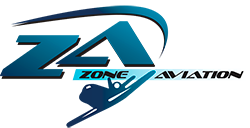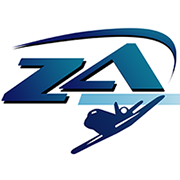What is a Discovery Flight?
A discovery flight is an introductory flight lesson. This experience will include pre and post flight instruction and a flight with one of our certified flight instructors. A discovery flight is a great way to help you decide if you would like to enroll in pilot training. To schedule your discovery flight or learn more, click here.
How do I begin training?
The first step is to begin an online ground school, where you will learn the aeronautical knowledge to prepare you for the private pilot knowledge test. After a few weeks of ground school, you will begin flight lessons. Once all ground and flight lessons have been successfully completed, you will be ready for the practical test with an FAA designated pilot examiner.
How do I pay for training?
Our program is designed for you to pay as you train. Once you begin flight lessons, payments are made per lesson. If you decide you would like to finance your training, there is funding available through financing companies such as Pilot Finance or AOPA Finance, just to name a few.
How long will it take?
The national average to complete private pilot flight training is about 70 flight hours. At Zone Aviation, we average 52-55 hours per student. We attribute this to our highly structured curriculum and seasoned instructors. Our students also play a key role in our program success. During training, they utilize our “best practices” to accomplish lower completion times while becoming safe and proficient pilots. Depending on your schedule, flexibility, and financial resources, you can get your license in as little as six months by taking 2-3 lessons per week. If this does not fit your needs, you can spread the learning out over a longer period of time, or accelerate the frequency of lessons. Basically, we tailor your training to accommodate the demands of your life. The weather will also play a role in the frequency of your lessons. In the early stages of your training, optimal flying weather is needed until you develop basic piloting skills. Once this occurs, we will ease you into less-than-perfect weather conditions. This approach helps you gain the confidence and judgment needed to be a safe pilot.
Is it hard to learn how to fly?
Learning to fly an airplane has often been likened to learning to drive an automobile. This analogy is misleading. Since an airplane operates in a three dimensional environment, it requires motor skills development that are more sensitive to this situation.
Coordination: the ability to use the hands and feet together subconsciously, and in the proper relationship, to produce desired results in the airplane.
Timing: the application of muscular coordination at the proper instant to make flight, and all maneuvers incident there to, a constant smooth process.
Control Touch: the ability to sense the action of the airplane, and its probable actions in the immediate future, with regard to attitude and speed variations, and the sensing and evaluation of varying pressures and resistance of the control surfaces transmitted through the cockpit flight controls. Speed Sense: the ability to sense instantly and react to any reasonable variation of speed.
Should I fly a high or low wing?
Every airplane has its own particular flight characteristics. The purpose of primary flight training is not to learn how to fly a particular make and model airplane. The underlying purpose of flight training is to develop skills and safe habits that are transferable to any airplane. Basic airmanship skills serve as a firm foundation for this. The pilot who has acquired necessary airmanship skills during training, and demonstrates these skills by flying airplanes with precision and safe flying habits, will be able to easily transition to other types of airplanes. It should also be remembered that the goal of flight training is to become a safe and competent pilot, and that passing required practical tests for pilot certification is only incidental to this goal.
Do I need exceptional math and science skills to learn how to fly?
No, just a sound acquaintance with the principles of flight; the ability to operate an airplane with competence and precision both on the ground and in the air, and the exercise of sound judgment that results in optimal operational safety and efficiency. It also requires effort and dedication on the part of both the student pilot and the flight instructor. From the very first training flight, proper habit formation begins with the student being introduced to good operating practices.
What should I do next?
Please call 440-322-3692 or 216-333-1537 to schedule a Discovery Flight or a tour of our Cleveland or Elyria facilities. At this time we will also be able to answer any additional questions and present various options to accommodate your needs.

